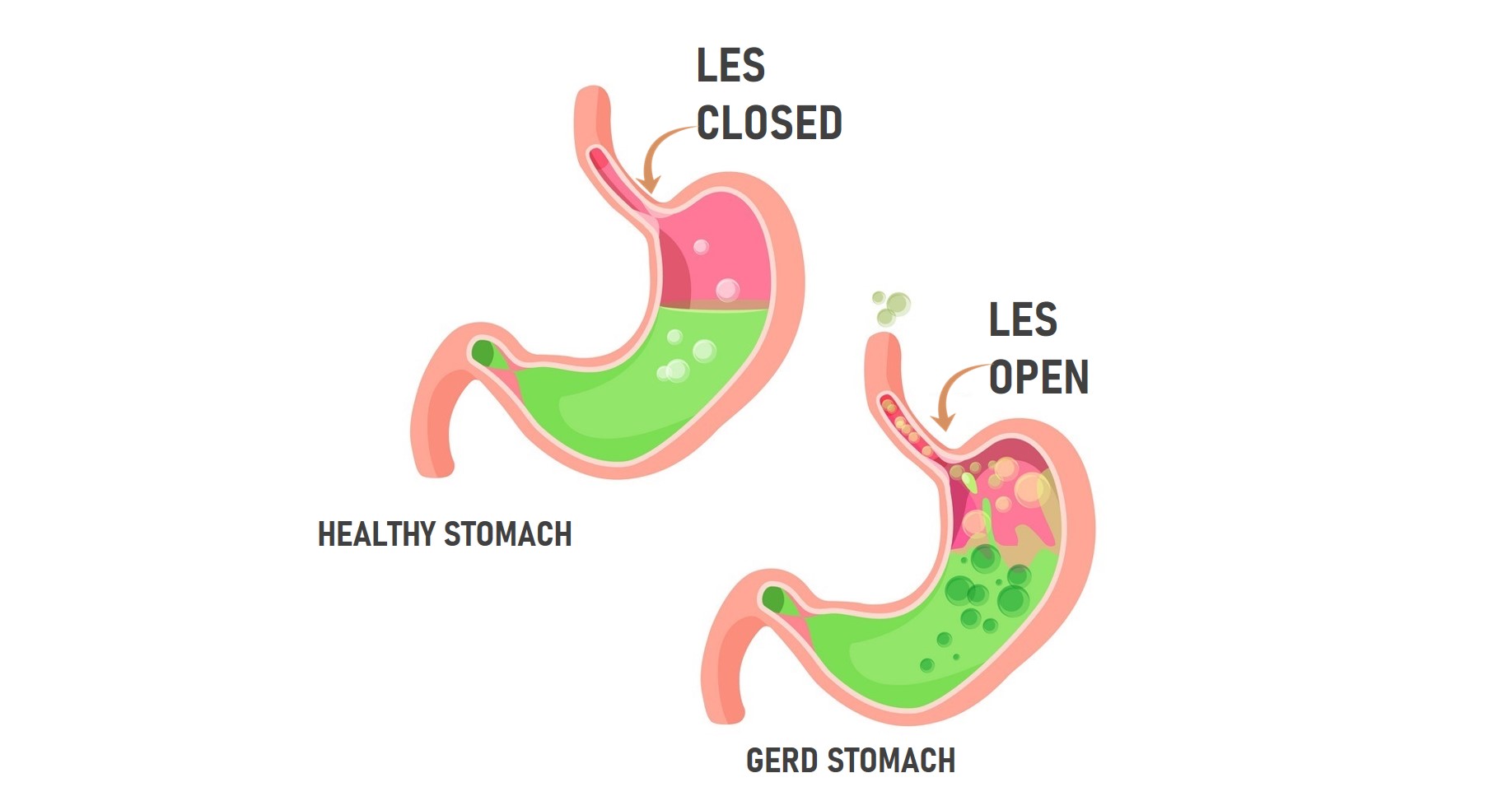It’s common to experience a heartburn after a heavy or spicy meal. Heartburn, indigestion, regurgitation or reflux can all happen after indulging in a big meal. But for some people heartburn and acid reflux occur more regularly, multiple times a week.
But did you know these issues are also a sign of a chronic digestive disease? Such serious condition is called gastroesophageal reflux disease, more commonly referred to as GERD.
What is GERD?

Shortly said as – a digestive disease in which stomach acid or bile irritates the food pipe lining.
This is a chronic disease or digestive disorder that occurs when stomach acid or bile flows back into the food pipe and irritates the lining.
This flow is controlled by the lower esophageal sphincter (LES), a muscle between the esophagus and the stomach that relaxes to allow food and liquid to pass through to the stomach, and closes once it has passed. Sometimes it is normal if LES relaxes but excessive amounts of backflow can damage of the esophagus lining.
So if you are experiencing frequent heartburn symptoms, it is important you may need medication to control the acid reflux or an upper endoscopy to evaluate for chronic injury.
Symptoms of GERD
- Heartburn
- Reflux
- Regurgitation
- An acidic taste in your mouth
- Difficulty swallowing
- Cough
- Voice changes
- Chest pain
- Adult-onset asthma
- Frequent pneumonias
See Also: GERD may cause gas from the stomach to rise up as sulfur burps
Causes of GERD
Temporary or permanent loss in the function of LES is the most common cause of GERD. GERD occurs more commonly in people who are:
- overweight or obese
- pregnant
- taking certain medications
- smoking, and being exposed to second-hand smoke
If GERD left untreated, can lead to complications, including:
- inflammation of esophagus
- scarring of lungs
- asthma like symptoms
- impaired quality of life
- esophageal cancer
Treatment of GERD
Fortunately, GERD is easily treated. GERD treatment options will vary based on your health history and the severity of your symptoms. Majority begins with over-the-counter or prescription medications combined with lifestyle changes, suggested by GERD specialist.
Treatment of GERD generally targets avoiding triggers that cause your stomach to produce acid such as caffeine and alcohol.
Over the counter anti-acid medications are best for mild symptoms and can work by neutralizing stomach acid. While some stronger medications help stopping the production of stomach acid.
Dr. Bhavesh Thakkar suggests that even with medications your symptoms persist for more than eight weeks you should consult your doctor or GERD specialist. Because the underlying cause of GERD is the mechanical problem with LES and are best treated with surgery.
You can also contact Dr. Bhavesh Thakkar, GERD Specialist in Ahmedabad.





No comments yet.